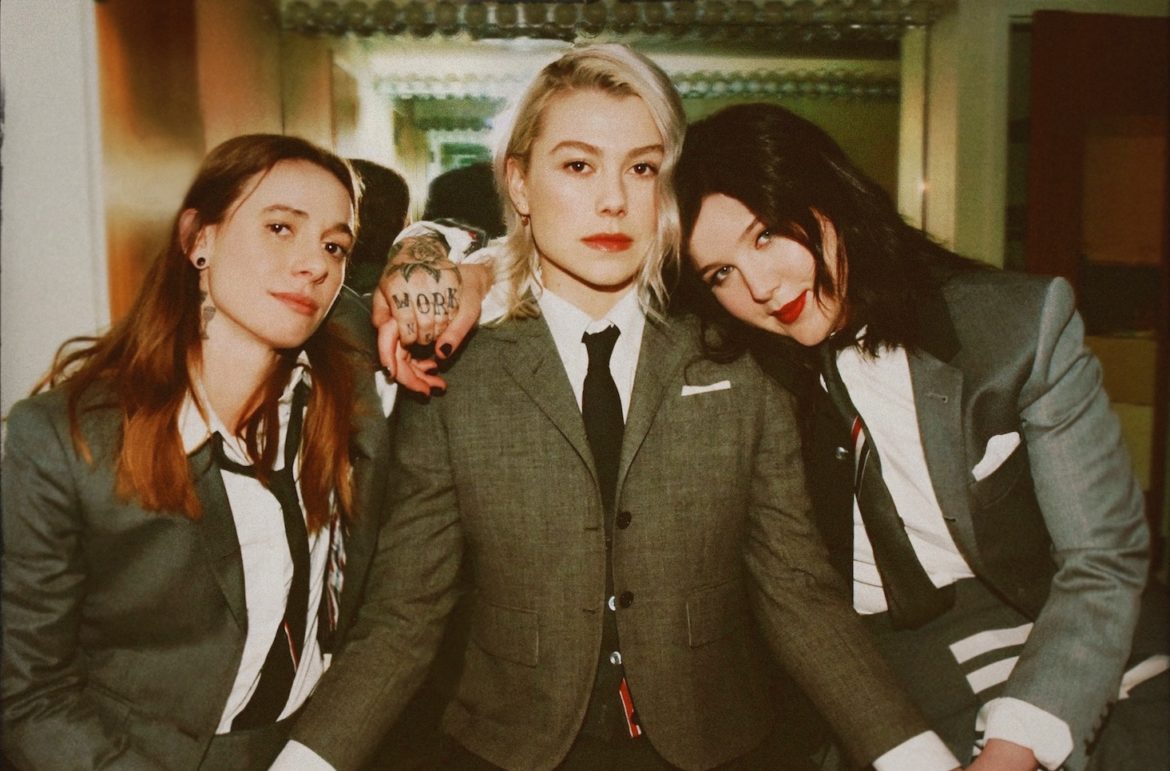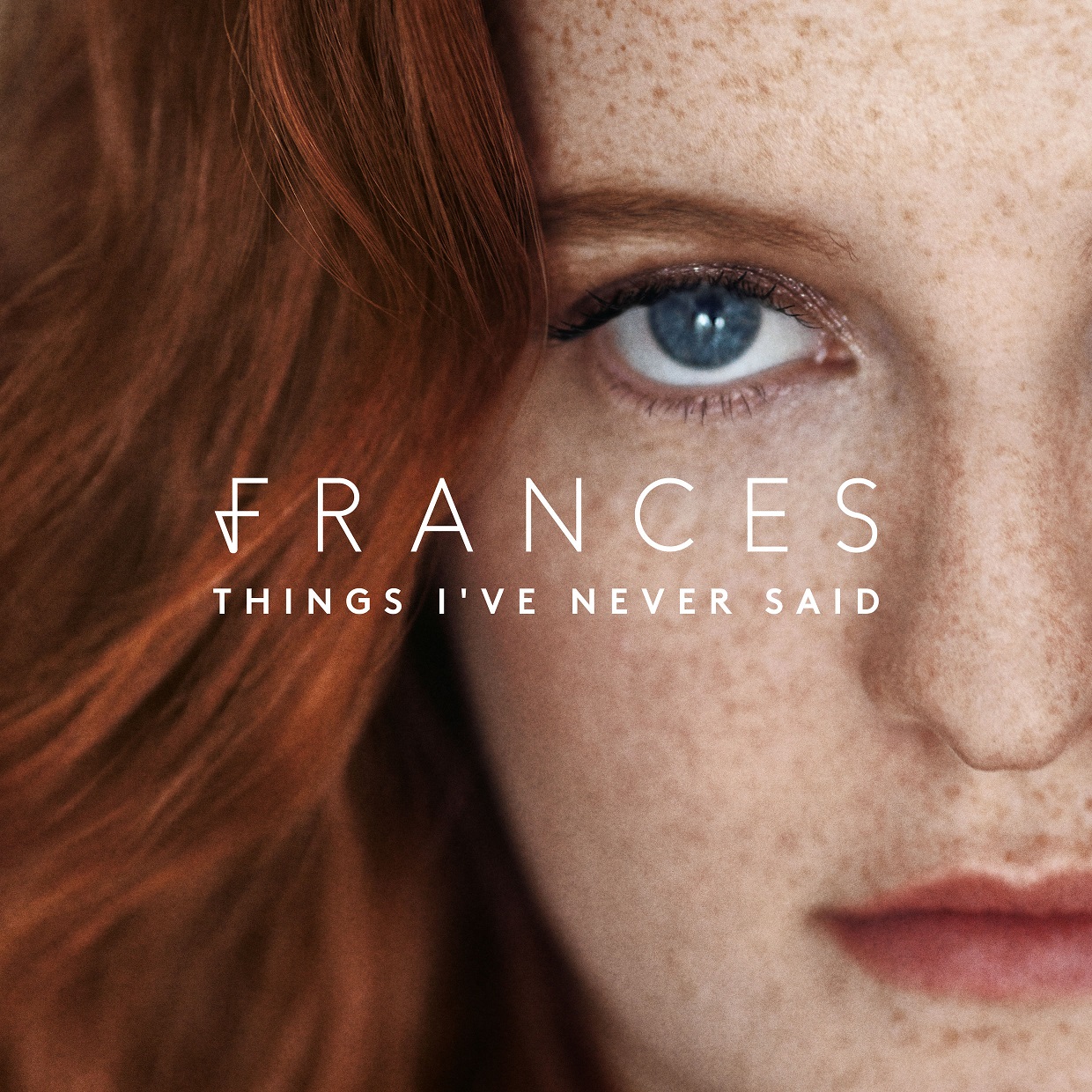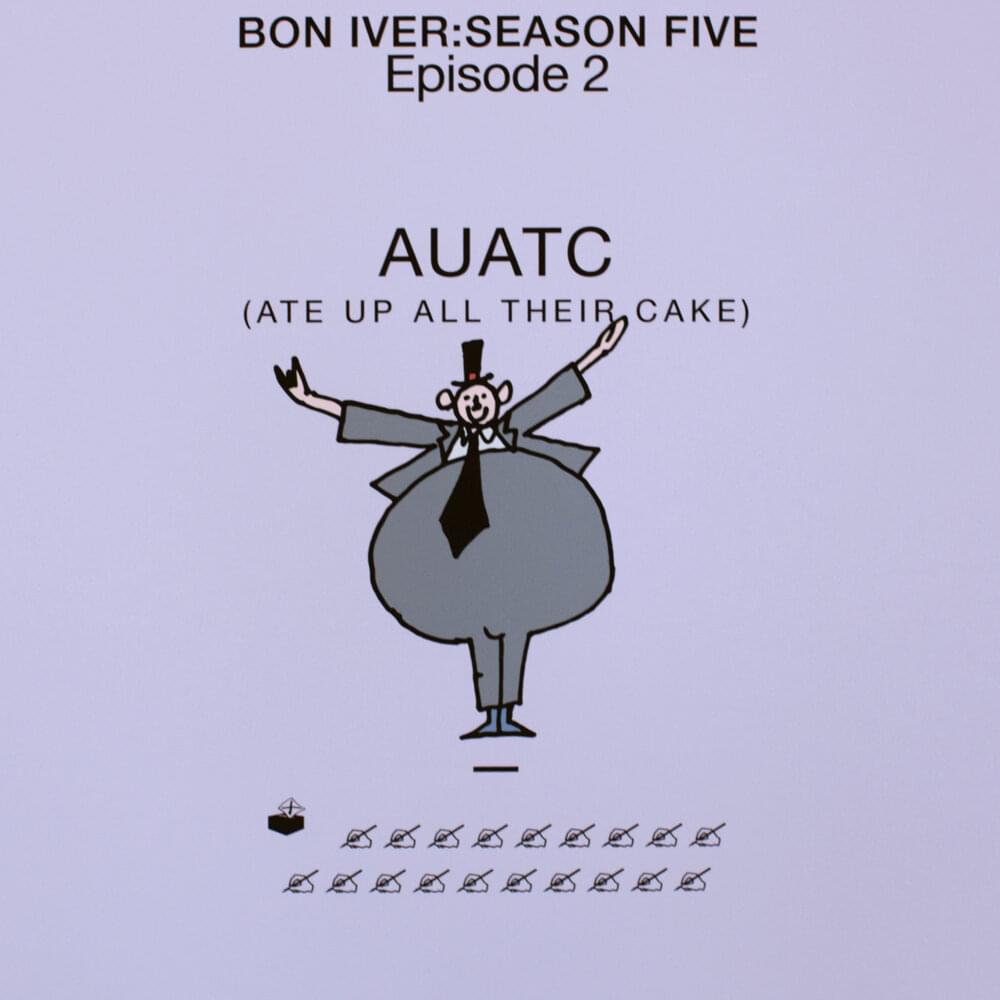Atwood Magazine’s writers ugly cry as they unpack the emotional baggage behind boygenius’ ‘the record’ – the heartfelt, deeply wrought, and stunningly strong debut album from the supergroup of Phoebe Bridgers, Julien Baker, and Lucy Dacus.
featured here are Atwood writers Sophie Severs, Nic Nichols, Kevin Krein, Josh Weiner, Kylie Gurewitz, Beau Hayhoe, and Oliver Crook!

— —
To start, what is your relationship with boygenius’ music?
Kevin Krein: I was aware of Julien Baker when Sprained Ankle dropped originally and she began to get a lot of press, but I truthfully was in a place at the end of 2015, where I just was unable to give that record the time and effort I perhaps should have. In 2017, shortly before Stranger In The Alps was released, I saw a headline from The AV Club that said something to the effect of it being the saddest album of the year, and that Phoebe Bridgers was more or less an heir to the throne of Elliott Smith, which was enough to get me interested.
Roughly around the same time, Baker released her second album, Turn Out The Lights, and I was immediately taken by how honest and bleak it was—and really entered into my era of listening to sad young women making sad music for sad white people
Lucy Dacus released Historian in the spring of 2018, and I liked it — inherently it is not as sad, or somber, on the surface as either Stranger or Turn Out The Lights was, but there is rich soulfulness to Dacus’ voice, and I really admired how audacious of a track one/side one, and lead single “Night Shift” was, just in terms of how it shifts from one movement, into the other, with so much of it being just her and the guitar, before the rest of the band comes slamming down for the catharsis at the end.
I gasped out loud in my home when the original self-titled EP was announced in the summer of 2018, with a late autumn release, and then the accompanying tour featuring Dacus as the “opener” and Bridgers and Baker co-headlining. With all of their respective solo outings really growing in scope and profile over the last three or four years, I was uncertain what kind of priority, if any at all, would be given to resurrecting boygenius as a band, and how they would proceed with it if they did.
Beau Hayhoe: I think like many boygenius listeners, I came across the group through the sum of its parts – first falling in love with Julien Baker’s sparse, lovely-yet-heartbreaking Sprained Ankle, then Stranger in the Alps by Phoebe Bridgers, then finally coming around to Lucy Dacus’ music. And by the time the debut hit the airwaves, I was fully onboard and so excited.
I think like most listeners, that debut offering left me wanting more – playing to each singer’s strengths, giving them room to shine and letting small flourishes stand out in big ways (“Souvenir” especially still crushes me).
It was incredibly cool to see the trio play solo sets on tour back in the fall of 2018 (Lucy, then Julien, then Phoebe), before they returned as boygenius for the encore – a sign of bigger and better things to come!
Kylie Gurewitz: I was a big fan of Lucy Dacus before boygenius, and while Phoebe Bridgers and Julien Baker were both on my radar, I didn’t know either of their catalogs super well. A friend of mine sent me the first boygenius EP shortly after it came out, and I loved it. Ketchum, ID, really stood out to me, which totally put me onto Phoebe’s songwriting. I remember listening to Punisher the day that it came out mid-lockdown and Black Lives Matter protests, and just being blown away — that is definitely one of my favorite albums of all time. I really like Julien’s songwriting, but I’ll confess that I don’t know her solo discography quite as well as the other two.
I love the three of them individually, but there’s something magical about boygenius, and I always hoped they would make more music together. It’s been interesting being a fan over the last few years, as companies and the world at large have tried to commodify this genre of “sad-girl-indie” music that these artists actively try to resist. But you can’t pigeonhole boygenius, that’s for sure.
Sophie Severs: boygenius’ music has always been the perfect soundtrack for life’s most emotionally raw moments — moments of transition and immense emotional upheaval. Their entire discography is one that must be closely listened to; as their lyrics hold nuances that practically beg to be analyzed. But be warned: before you think too hard about the implications of those lyrics, you better grab some tissues, as you might end up shedding a couple (or a lot) of tears.
At times, their discography almost seems to add insult to injury, bringing thoughts that lie deep within your psyche up to the surface for close examination. The three seem to have the miraculous ability of describing exactly what I’m feeling for me when I can’t seem to summon the rhetoric to do so myself — thanks, guys!
I remember adding “Souvenir” to one of my playlists when I was in the midst of figuring out whether a relationship I was in was truly good for me or not, and how to fathom getting out of it if it turned out to be the latter — a query that Baker, Bridgers, Dacus also ponder within the themes of the record. Dacus and Bridgers harmonize at the end of the last verse, singing, “When you cut a hole into my skull / Do you hate what you see? / Like I do” — a phrase that captured my frustrations at myself and my anxieties around this relationship that was, in theory, supposed to be something that brought me unlimited joy. In the end, things didn’t end up working out for me and my partner at the time, but my relationship with boygenius was strengthened tenfold, and hey, that’s good enough for me!
Nic Nichols: I’m likely the minority here, as I stumbled across boygenius before I took the time to delve seriously into any of the individual artists’ discographies. The first EP kind of spun around my friend circle at a crucial point of transition for all of us, and I think we attached seamlessly to the emotional intimacy of the sound. From there it became sort of a scavenger hunt for me as I attempted to deconstruct the project and determine the source of each element.
I think from this point I became even more of a fan, as there wasn’t a singular voice or style that shoved above the rest. Dacus’ sharp guitar blends seamlessly with Baker’s calculated introspection and Bridgers’ haunting, velvet musings. The collaboration was both a no-brainer and electrifyingly exciting, but I assumed it to be a standalone project to be appreciated from a distance as the artists’ respective essences continued to mature. The announcement of a full album was definitely not on my 2023 bingo card, but I was immediately eager to see how well their original synastry held up.
Josh Weiner: Well, I feel a little humiliated staring down these long-winded answers about my colleagues’ ages-old ties to boygenius… but frankly, I don’t think I’d ever heard of this group until just now! I had heard about Phoebe Bridgers for sure and enjoyed some of her music, which left me inclined to participate in this roundtable.. But the names “boygenius,” “Lucy Dacus,” and “Julien Baker” were hitherto completely foreign to me.
Then again, if I were only willing to cover artists with whom I had previously been acquainted, I would have amassed far fewer than 200 reviews throughout my eight years as an Atwood staff writer. Plus, I regularly enjoy taking part in these roundtables, so that didn’t prevent me from signing on for yet another one. Here goes nothing….
Oliver Crook: Honestly, this is my first deep dive into boygenius: To my eternal shame, I somehow completely missed the EP. While I’m a big fan of Bridgers’ Punisher, and Baker’s Sprained Ankle, I feel like a relative newcomer to the deeper work of all the musicians. On the bright side, the record has started a huge quest down the musical rabbit hole for me.
What are your immediate reactions to the record?

Beau Hayhoe: I think the record does exactly what it set out to do – play to the strengths of each while showing how well they play off each other together as singers and songwriters. It’s almost as if the trio is in perfect lock-step – you can tell they’ve got a special bond and friendship, one that’s grown around and because of music, and likely grown stronger through the music. I think it comes through immediately, and I think each has left a unique sonic imprint from song to song. I’d love to be in a room (or on a Zoom call?) as they figure out arrangements and share song ideas (and digital files?) back and forth.
Kylie Gurewitz: I was (secretly) afraid that it couldn’t live up to the first EP, or the solo work, but I didn’t need to be. There were so many moments on the first listen that blew me away; from guitar build-ups to stunning harmonies to gut punches in the songwriting. In comparison to the 2018 EP, which was recorded in a few days, with a small group of people, this record doesn’t have the same kind of raw intimacy in the sound, but it maintains that feeling through the lyricism and the moments that sound like little voice memos that got tossed in the mix, like on “Satanist.”
Sophie Severs: I mostly felt distraught after my initial listen. The way that the three grapple with this notion of love and attempt to make sense of it and define it is so deeply upsetting while also being incredibly eye-opening. This body of work is equally as much a personal attack as it is a therapy session (albeit, the two certainly overlap at times). You get this strong sense of catharsis from every track; and even though the album ends on an emotionally-ruinous song, you come out on the other end feeling a little more healed than you were before you started.
Nic Nichols: The word that immediately comes to mind with this is “peripheral”. You find yourself pulled into an all-encompassing feeling, then immediately jerked back again to another jaw-snapping profession. They seemed to have elevated their relationship through the years; what originated still as a shockingly fluid blend of artistry now acts as an amplifier to their respective talents, while still maintaining the magic that sets each of them apart in the genre. It’s both an intervention and a trigger; by its end you’re emotionally exhausted in the best way.
Josh Weiner: It’s a mighty fine record! I was impressed to see it notch a remarkably high score on Metacritic, and I’m pleased to say that those positive reviews are entirely justified, giving the supreme musicianship and effortless transition between exciting and mellow ambiance all the way through its 42-minute runtime.
Oliver Crook: True, deep love. It’s a near-perfect exercise in balance and control: It tackles serious topics with enough humour to remain self-aware, it’s folky while knowing when to rock, it allows each star to shine while maintaining it’s unique boygenius sound. Baker, Bridgers and Dacus were clearly untethered from expectations and comfortable enough with each to drive out of their comfort zones and create something greater than themselves. I’m impressed by how much personality they are able to fit on the album.
Kevin Krein: My immediate reaction is that this is the most emotionally upsetting record of 2023. Like, I am certain that The National’s new joint will also be rather emotional at times, but a lot of The Record is 100% an act of emotional terrorism and that is why I love it.

How do you feel Julien Baker, Phoebe Bridgers, and Lucy Dacus have grown as songwriters since boygenius’ debut in 2018? Where can you hear that growth on the record?

Kylie Gurewitz: From a listener’s perspective, it seems like working together has given each artist greater license to take risks, and take themselves a little less seriously at times. In a W Magazine interview about the first EP, Dacus said, “I feel a third of the pressure, and three times the joy.” So much of the writing on the record strikes me as deeply unapologetic, like each member has given the others license to absolutely go for it. I think that thread was present in 2018, but now it feels established as a key component of the songwriting, which you can absolutely hear on “$20” and “Letter to an Old Poet.”
Sophie Severs: The arrangements in the record take on a harder, more rock-leaning soundscape than their self-titled debut EP — sounds that the three have respectively been honing within their own solo careers. Baker, Bridgers and Dacus seem to be completely in sync within the 12 tracks; weaving bits and pieces of their own artistic inclinations into the grand tapestry that is the record. Each member divulges an extremely authentic portrait of their individual psyches, but it seems that they are unafraid to delve into this vulnerable space — so long as they have one another there through the experience.
Nic Nichols: There’s a comfort in these lyrics that one can only attribute to years of communication and earnest collaboration. Listening to Dacus’ Home Video felt akin to cutting through an autopilot persona with a razor-sharp knife and showcased a similar newfound assuredness and acute directness in her lyrics. Julien Baker’s progression, in my opinion, can most clearly be seen in her composition. Little Oblivions was an absolute masterclass, and Baker’s use of percussion entirely elevated my perspective of the instrument. Punisher’s momentum never once stalled since its 2020 release, and for good reason. It’s hauntingly cathartic and situated itself firmly as an integral artifact of the time. the record has a similar aura; it already almost feels nostalgic.
Oliver Crook: There feels to be such a bigger willingness to push the sound’s edges and take more risks. I would never call any of their solo albums safe, but the record has an unspoken strength to it that comes from being pushed by those who you’re closest to and respect.
I keep coming back to this quote from Dacus: “If one person was having a thought—‘I don’t know if this is good, it’s probably terrible’— it was like, ‘No! Be the boy genius! Your every thought is worthwhile, just spit it out.’” I feel this comes across all the time on the record, as you can hear the moments that previously they would have held back instead of driving on into the unknown. Take that beautiful moment in “Revolution 0” where Bridgers sings “I used to think/If I’d just close my eyes/I’d disappear” and the song fades out, before the strings and guitars roar back in a dreamlike drift. Not only is it stunning, but it’s a moment that only fearless artists would attempt.
Beau Hayhoe: If you think about it too much, it’s almost astounding how each of them have grown in their own ways since that 2018 debut. I’ve (perhaps) been most impressed by what Julien Baker has done with her stage show and her absolutely crushing 2021 record Little Oblivions – to see what she can do with a full band behind her is inspiring. And you can certainly tell both Lucy and Phoebe have grown leaps and bounds, too – Phoebe’s popularity as a newly minted indie star gone (nearly) mainstream speaks to that.
To me, the songs and arrangements are denser, louder and yet more intricate all at once – the debut EP felt sparse at times, in a great way, and yet there’s more complexity at play across this full LP.
Kevin Krein: Watching the growth, and I mean specifically with Bridgers to start with, has been impressive. Punisher, just in its complex and dense arranging, is still really something to behold, even three years after it was released. Additionally, it was natural for Baker to introduce a “full band” sound on Little Oblivions; you could hear her kind of dabbling with it in one-off singles from 2019, and it has added a lot of sharpness and depth to her songwriting. Dacus, on Home Videos, like both Baker and Bridgers, has really embraced the use of more textural elements—like moody synthesizers, interesting effects, or just like writing songs that eventually end up growing into something much larger than she may have been able to pull off with such ease in the past. I think that kind of growth and maturation can be heard on The Record in both how it sounds—it’s slick and full of like subtle studio trickery, but in doing that, it meets everyone where they are now, and none of like the big or bombastic sounding moments seem insincere, but also in the very ambiguous confessional nature of the lyricism, in the song where it is clear that one person had more of a hand in writing it, and in the tunes where there is a balance between all three voice and what they contribute. It takes a lot of intelligence to craft these kinds of personal narratives but not play your entire hand while still sharing so much of yourself.
Josh Weiner: As mentioned above, I’d never heard of boygenius (or any of its members aside from Phoebe Bridgers) before this record came out. By extension, I was oblivious to the fact that they had indeed released a debut EP in 2018– frankly, if all they’d previously released was one 20-minute EP five years ago, then I feel less embarrassed by the fact that I’d never heard of this group until just now.
If this roundtable article didn’t have such a tight deadline (i.e. be due tomorrow when the album actually comes out), then I’d take the time to listen to boygenius and get some thorough reflection as to how the EP and LP compare to one another. But since that ain’t gonna happen, I’ll just say this: Given that their first EP came out five years ago and they’ve done great things individually since then (check out Phoebe Bridgers’ highly impressive Metacritic scores, for instance), then I’m sure that the follow-up LP demonstrates even more musical expertise and sonic cohesion than they managed back in 2018. Hopefully soon enough, I’ll have a proper listen just to see whether that is indeed the case.

All three artists have also released albums since boygenius’ debut. How does the record compare to their solo work? Where do you feel the collaborative identity of boygenius shines brightest?

Sophie Severs: The track that best addresses this question is perhaps “Cool About It.” Baker, Bridgers and Dacus all take up a verse, sharing their different experiences in a working dialogue; patiently sorting through their insecurities and emotional processes. While they might have different sonic tendencies and things to bring to the table, they are brought together by these universal feelings.
As the three say in “True Blue,” “It feels good to be known so well” — and I can only hope that the lyric was in part, a reference to their friendship. The love between these three friends shines through every track, whereas with their solo projects, one can get a sense of cold isolation in these inescapable feelings that they are describing all alone. As a united front, boygenius unabashedly confronts these less-than-optimal feelings, leading the charge for their listeners to do the same.
Nic Nichols: I keep coming back to the lyrics, but the record is truly a standout in terms of its subject matter and the marriage of perspectives through which it’s conveyed. When the original three songs first released, though the punchy guitars in $20 lean more toward my preferred sound, ‘Not Strong Enough’ gave me a stronger perspective of the voice exclusive to boygenius. The harmonies as the three sing “Always an angel, never a god’ allow each of their voices to float above water. In ‘True Blue’ “But it feels so good to be known so well / I can’t hide from you like I hide from myself” was one of those snapping moments that forces you to pause and reflect on your relationship with both yourself and the larger body of work. Boygenius doesn’t take the ‘relatability’ tag lightly– you have to work for it.
On the complete album, ‘We’re In Love’ is the tender serenade teased in the introductory ‘Without You Without Them’. Dacus’ cinematic storytelling has always been something I truly cherish, and her touch in this track is impossible to ignore. The lyrics are coated with an unwavering adhesive that both drowns and shields you from complete emotional consumption. ‘In the next one / Will you find me? I’ll be the boy with the pink carnation / Pinned to my lapel, who looks like hell, and asks for help / And if you do, I’ll know it’s you.’ No words necessary– these are the lyrics that find themselves referenced years in the future.
Josh Weiner: I hate to do another cop-out, but this seems like the kind of question where I’d need to really listen to each member’s catalog more thoroughly, develop some seasoned impressions of each one’s individual strengths and styles as exhibited on their past records, and then come back to say how those are reconjured on this new one. Given that I’m writing on a tight deadline, I won’t be able to do that process justice before my answers here are due. But I do look forward to developing my own answers to that question once the luxury of time is more greatly bestowed upon me.
Oliver Crook: While I enjoy most of the songs on this album, what impresses me most about it is the cohesion in tone and vibe throughout. It’s a very complete album: The songs merge seamlessly, the lyrics are personal but convey a unified message, and every song sounds like a boygenius track, not a Dacus, Baker, or Bridgers solo offering. Conceiving of such a solid theme and executing it so seamlessly comes from musicians at the peak of their powers.
Kevin Krein: The genuinely interesting thing about Boygenius as a band, both on this album and on their EP, is that there are the echoes of everyone’s solo output in the work they do together, but the collaborative spirit is something that does ultimately make it unique. Also, there is the very palpable love and admiration that Bridgers, Baker, and Dacus all have for one another and you can honestly feel that in a lot of these tunes—even when they are singing about something so god damn heartbreaking, they are having fun doing it together.
Kylie Gurewitz: I think the arrangements and the instrumentation on the record are unique to boygenius as a group; it feels like each song takes different elements of each artist’s sound and plays around with different combinations.
There’s also this ability through the co-writing to be able to tell stories from multiple perspectives, which you just don’t get in anyone’s solo work. Songs like, “Cool About It” and “Not Strong Enough” capture the same beauty of “Ketchum ID,” where one idea seems to inspire each artist to tell her own story that swirls into one continuous thread; that’s gotta be one of the greatest feats of this band.
And then there’s the obvious fact that these three can harmonize insanely well. The textures of all of their voices are totally unique, but they’re able to create something incredible in those three part harmonies. I think there’s also more screaming on the record than in any of their solo work, so that’s a highlight.
Which songs stand out for you, and why?

Nic Nichols: “The Satanist” hands down scratches an itch that I thought was long-dormant. It’s nihilistic, an unapologetic title that begs to be screamed from the rooftops, featuring as well a dazed denoument of a truly emptied spirit. ‘Will you be a nihilist with me? / If nothing matters, man, that’s a relief / Solomon had a point when he wrote Ecclesiastes / If nothing can be known, then stupidity is holy / If the void becomes a bore / We’ll treat ourselves to some self-belief’. It’s an angsty nod to Baker’s troubled upbringing and religious trauma overall, but my love for it lies more in the fact that the song insists on its unabashed-ness. It’s empowering from a place of understanding and safety, and this comfort seems to allow Baker to channel such large emotions without sacrificing depth or selfhood.
Oliver Crook: As I mentioned above, I’m more impressed by the totality of the album than any particular songs. It feels like an album that you listen to front to back, rather than pick out individual tracks to bask in. Having said that, “The Satanist” is phenomenal: It’s catchy, a tempo that the three thrive at, and allows all three to showcase their best skills and huge personalities. It’s one of those moments on the record that everything lines up and for four minutes and 50 seconds everything feels right with the world.
I also love the deeply personal nature of “Emily, I’m Sorry” and that moment halfway through “Anti-Curse” where the emotional dam breaks and you either are swept along or drown in the feelings — your choice.
Kevin Krein: Of the three original singles released in January when the album was announced, “True Blue” was the real standout of those, simply because of how swooning and melancholic it is in terms of its arranging, but also lyrically it is one of the most devastating to hear. Also, “Not Strong Enough” is incredible—it soars to unimaginable heights in the chorus, and the sheer release of tension from the build up of “Always an angel, never a god,” is one of the most impactful moments in a song this year.
Beau Hayhoe: “True Blue” certainly carries its weight as one of the album’s lead singles, and I’m impressed with the sort of ‘90s alt-rock feel of “Satanist” – these songs both strike me as heavier than anything on the previous boygenius release, in a pleasing way. The fact that you can hear all three in harmony (lock-step!) is a testament to the record’s production, and perhaps the desire among the group to let everyone have space to carve out their own path.
Kylie Gurewitz: “Letter to an Old Poet” is such a freaking gut punch. It has the same devastating feeling I haven’t gotten since “Killer.” There’s a callback to “Me and My Dog,” when the three of them sing “I wanna be,” and then there’s this upward shift in the chord, and Bridgers sings, “…happy, I’m ready.” It’s an incredible way to musically embody an internal transformation. It felt like one of the big themes of the first EP was this self-hatred, or maybe a self-contempt, which is so viscerally apparent in that “Me and My Dog” lyric: “I wanna be emaciated.” To tease that line and then play with that expectation is pretty masterful songwriting; my jaw dropped when I listened for the first time.
Josh Weiner: The overall consensus here seems to be “True Blue,” so I’ll endorse that track as well. But I’ve enjoyed everything that I got to check out on the advance listen, and I’ll give a particular shout-out to the colorful instrumentation on “Not Strong Enough” and the ethereal vocals on “$20.” We’ll see how my impressions mature as I become better acquainted with the music.
Sophie Severs: I absolutely love the idea of healthy, boundless love within “True Blue,” and spunky admission of inadequacy in “Not Strong Enough,” but I ultimately have to concur with the aforementioned statements on “Letter to an Old Poet.” Healthy love is a foreign concept for much of this record, as the three put their heads together to figure out what exactly that weighty ‘L-word’ entails.
As heartbreaking as the track is, it masterfully captures true heartbreak and the ragged road of healing that follows. The lyricism is filled with so many juxtapositions that capture how difficult it can be to love someone when the best they can give you is ambivalence. But even when receiving this lackluster type of ‘love’ the rose colored lenses are cracking, as Bridgers takes the lead, singing, “Said I think that you’re special / You told me once that I’m selfish,” continuing on to confess, “And I love you / I don’t know why / I just do.” Through the course of the track, the three musicians slowly unlearn the notion of having to stay by someone’s side no matter what, instead centering themselves and their needs in the narrative. The three harmonize: “You’re not special, you’re evil / You don’t get to tell me to calm down / You made me feel like an equal / But I’m better than you and you should know that by now,” slowly but surely realizing their self-worth after years of numbness. They’ve reached a turning point, and though they sing, “I can’t feel it yet / But I am waiting,” the hard part is done and the future lies ahead.
What lyrics from the record make you specifically feel seen and/or called you out?

Josh Weiner: I recently came back from a February break trip to Quebec with icicles hanging from my face (my broadly grinning face, though– it’s friggin’ awesome up there in the wintertime!) Thus, I can all too readily relate to the lyrical passage on “Emily I’m Sorry” that goes, “Just take me back to Montreal, I’ll get a real job, you’ll go back to school, We can burn out in the freezing cold, And just get lost.” That reminds me a lot of how things went up there for me and my parents, who I somehow convinced to join me on this frigid Canadian adventure. We made it through the freezing cold in Montreal and Mont Tremblant, but also managed to “burn out” afterwards– namely, when we went to warm ourselves at the firepit in the park in Saint-Jovite, QC after our post-skiing dinner! “Just take me back to Montreal” is pretty much my exact sentiment after such an awesome trip as that– I have my eyes on the Festival International de Jazz in June for my next opportunity to make it happen.
Kevin Krein: Honestly, it’s a lot of the lines from “True Blue” for me: “You already hurt my feelings three times on the way only you could,” and “You’ve never done me wrong, except for that one time that we don’t talk about.” And of course the line that lingers from the chorus, “I can’t hide from you like I hide from myself.” Additionally, a lot of “Letter to An Old Poet,” too, is pretty difficult to hear in terms of unflattering reflections: “You’re not special, you’re evil. You don’t get to tell me to calm down.”
Oliver Crook: Oh, where to start with this question. I feel like I could list so many, so I’ll just point to guy — wrenching closer “Letter to an Old Poet” While many will point to the “I’m better than you” lyric—and they should, it’s amazing— but my favourite is the bridge:“I wanna be happy/I’m ready to walk into my room without lookin’ for you.
Beau Hayhoe: “True Blue” again shines through here for me – I know other listeners and writers have absolutely loved the lyric “It feels good to be known so well/I can’t hide from you like I hide from myself” – and I count myself among that group!
Interestingly enough, on “Revolution 0,” I was struck by the line “I’m afraid to get sick, I don’t know what that is” – that’s perhaps an interesting meditation on the cautious steps taken during the pandemic (and indeed, as we still adjust to going to shows and getting out in the world again!).
All three songwriters have this way of hitting the nail on the end – they’re singing from the heart, and from their own experiences, but in a way that cuts right to the core of the human experience, and that’s a wonderful thing.
Sophie Severs: There are so many lyrics to which I had an ‘ouch’ moment to.
“I’ll pretend being with you doesn’t feel like drowning” in “Cool About It” is really hard-hitting. So often we feel as though we must don this cheery persona and pretend that everything is fine — when in reality we might be going through the worst circumstances, or feeling heavy emotions and not know how to get out of a situation. This track brings light to those emotions in an extremely empathic way.
“It feels good to be known so well / I can’t hide from you / Like I hide from myself” is the most heartwarming phrase ever coming from these three. I love this notion of unconditional love and the feeling of truly being seen by another.
I’ve mentioned that love is this foreign, confusing concept that the three consistently try to define within the project. The lyric, “If it isn’t love then what the fuck is it / I guess just let me pretend,” in “Revolution 0” perfectly sums this up. They lean into this farce, playing along until they can convince themselves that this is truly what love is.
“I might like you less now that you know me so well.” Oof. That lyric in “Leonard Cohen” hurts. The way that the phrase is said in such a flippant manner is accurate to many real life situations. It’s devastating when you give so much of yourself to someone only to have them pull back, but you always end up growing from it. Here’s to fresh starts and bigger and better things!
Nic Nichols: Can I re-use? Though I touched on its impact before, the lyrics, “Always an angel, never a god” have really taken me under their wing and encapsulated this grand scope of meaning that boygenius continues to invoke in their work. To me, it’s a reference to womanhood and navigating their success in a male dominated industry while identifying as such, as even their respective bodies of work are often celebrated but rarely acknowledged as the true genius on display. Also, it describes this desire for control, whether or not that desire is rooted in good intention, and accepting it nonetheless as a part of one’s self.
Additionally, the ‘Letter to an Old Poet’ outro ‘I can’t feel it yet / But I am waiting’ is such a poignant confession of the journey of healing, how we need not be at the finish line to acknowledge the current moment for what it is.
Kylie Gurewitz: There’s so many lyrical gems on the record. It’s actually insane that the line, “I want to be happy,” is now one of my favorite lines in a song, and also one of the saddest I’ve ever heard. “Letter to An Old Poet” is lyrically so direct and visceral; it opens with “I said I think that you’re special,” and builds up to a musical climax to say: “you’re not special, you’re evil.” I guess that feeling of wanting to take back some kind of praise, or just feeling so differently about somebody in hindsight really resonates with me.
I also have to add that if you let the record loop, there’s something incredibly special about the last line, “I can’t feel it yet, but I am waiting…” transitioning into “Without You Without Them.” It’s as though the thing worth waiting for is the connection you’ll find with others.

Supergroups are always an interesting concept. What do you think Baker, Bridgers, and Dacus respectively bring to the table when it comes to the record?

Oliver Crook: What makes this trio so interesting is that where each excels is in areas that the others lack, making an album that plays to each’s strength: For example, few artists can be as personal as Baker, but Bridgers’ ability of knowing exactly when to rock out makes both of their contributions better. Each musician makes space for each other, making an album that falters in no aspects. Boygenius does such a masterful job of letting each musician soar.
Kevin Krein: I think both with the EP and the full-length, the idea of Boygenius plays to the strengths of everybody involved—there are the songs where it is clearly a “Lucy song” or a “Phoebe song” or whatever depending on the tone and who has more of a lead role, but they also work really well together as collaborators and you definitely tell, and hear, when it is a song where that is the case.
Beau Hayhoe: The wonderful thing about this LP is that you can each hear distinctive statements and songs throughout that reflect where each writer happens to be at this point in their career. Phoebe has a lovely way with words and intimate moments set atop quiet, lilting guitar, while Julien’s own solo work now has a more rocked-out, deeper intensity than in years past (when she played live shows with only a piano and guitar). And Lucy, to me, represents a nice middle ground – perhaps more of a classic ‘80s/’90s alt-rock feel at times, but with a knack for cutting ballads, too.
However, the beauty of the trio is that they can shift seamlessly through each of these modes – all three of them individually can write, sing, record and perform live from a different mindset (witness loud moments at Phoebe’s live show, or Julien’s quiet acoustic performances). And again, on the record, all three elements are at play here.
Kylie Gurewitz: I can only wish to be a fly on the wall in one of these writing sessions, but it seems to me that while each of them brought a few fully written songs to the record, they worked together in the process of building them up. It seems like Baker brings a huge amount of musical and instrumental development to a song, whereas Dacus has a gift for refining the lyricism, and Bridgers has a knack for shaping the melodies.
Sophie Severs: Baker, Bridgers, and Dacus all have different strong suits, but they neatly intertwine within this body of work. As each of them have extensive experiences pioneering their own solo careers, the work of boygenius seemed to be utterly intuitive from the get-go. Phoebe brings this deeply introspective lyricism to the table, Baker adds onto it with her knack for creating a clean acoustic melody, and Dacus rounds it all out with her inclination for a hard-hitting rock anthem. Together, they are a force to be reckoned with; a super-supergroup, if you will.
Nic Nichols: I’d say they bring encouragement to a phenomenon that’s usually characterized by talented artists fighting to remain at the forefront. It’s clear upon first listen which hand constructed the exoskeleton for each track, but they seem to pull the best from each other and elevate the original concepts with their perspectives, rather than dull them to appease a larger assumption of what boygenius “should” be.
Josh Weiner: Like the term “indie pop,” the notion of an “indie supergroup” seems to be something of an oxymoron to me. But I’m glad to see these guys come together as well as they did on this album!
Has hearing the record changed the way you feel about or experience each artist’s solo albums?

Kevin Krein: At this point, I don’t believe so — there is an urgency though to The Record that does make one want to run back and obsessively listen to any of the solo outings by the members of the group and perhaps appreciate them more now, in this moment, than you perhaps had before.
Beau Hayhoe: Certainly – it’s clear that all three boygenius members make the others better, and that’s so cool to hear it take shape. I’d love to, again, hear more about their process, exchanging ideas and songs and thoughts, since you can hear the strengths of each member on the record.
Perhaps it’ll lead to shifts in the way they write and record, or approach the process, but I’ll be listening for more “Motion Sickness”-esque uptempo rockers from Phoebe going forward, and perhaps a return to Julien Baker’s quiet, nuanced approach, and I can’t wait to hear how Lucy lives up to last year’s much-loved Pitchfork Festival Saturday set, where she delivered some searing moments on guitar.
Kylie Gurewitz: Since the first boygenius EP, I’ve definitely started listening more closely to the solo work for background vocals; it’s been cool to hear Julien and Lucy sing harmonies on “Graceland Too” and to hear Phoebe and Julien sing on “Going, Going, Gone.” I’ll keep listening for little things like that, or common threads between songs.
Sophie Severs: As I mentioned earlier, all of the feelings expressed on Baker, Bridgers and Dacus’ solo projects feel so individual and isolating. It’s your typical occurrence of solipsism, feeling completely alone in the universe and like you are the only one who has ever felt this way. I’m definitely not listening to their solo projects and over-analyzing for extremely similar messages, but just knowing that the three aren’t so alone in their pain is such a healing thought to ponder when I tune into their respective projects.
Nic Nichols: I don’t think it’s necessarily changed my perspective of their respective solo albums but I do find myself listening a bit closer to the influences they each take away from each other in these projects. I hate to say ‘easter eggs’ because they feel less like marketable bait and more so thoughtful additions based on previous conversations and collaborations.
Josh: Honestly, I still need to check most of them out! But I did tune back into Phoebe Bridgers’ Punisher recently and I’m pleased to report that it still goes as hard today as it did when it first came out in June 2020– back when we all benefited from the reassurance that, in spite of all the ways in which the world was crumbling at the time, at least good music was still being released!
Oliver Crook: One hundred percent. As contradictory as this may sound, hearing them together has allowed me to isolate exactly what I enjoyed about each musician solo, allowing me to dive into their own work with a clearer idea of what makes them such generational talents.
What are your ultimate takeaways from the record, and what would you say is boygenius’ message to listeners right now in 2023?

Sophie Severs: the record, to me, is an ode to healing and the ever elusive concept of self-worth. boygenius holds our hands tightly as they walk us through this narrative of loving and letting go, accompanying us through this emotional rollercoaster of a record. If there’s one overarching message I got from the project, it is to protect your heart, and don’t settle for less in any kind of relationship.
Nic Nichols: What I took from it is to not be afraid of your own power, that there’s a way to express yourself authentically and free yourself from those seeking to stifle your voice without doing the same to another. the record as a whole so eloquently parallels the experience of finding and nurturing those relationships that last a lifetime, whether it be through shared intimacy, raw confessions, and pure individualism. It’s like that one night in with your favorite people that you could never forget even if you wanted to.
Kevin Krein: I think that a very obvious takeaway is that Boygenius really only works because the three people involved in it make space for one another’s growth outside of the project and support one another as they are able to. A “supergroup” could crash and burn pretty easily because of egos, or who is “more successful” outside of the project, but this is a great example of literally just three friends having fun, and making music together, outside of what they have been capable of doing on their own.
Beau Hayhoe: This LP is a defining statement that had a ton to live up to, long before it was even released – would boygenius ever even tour again, much less record, after that 2018 tour and EP? And how would it sound when they did? I think they’ve delivered a statement that if and when they feel like it again, they can certainly deliver a groundbreaking LP that lets each member shine through individually. It’s up to them, of course, but they’ve given fans more than they could have ever imagined, even now (with a summer tour on the way!). The prospect of future records is certainly an exciting one.
It’s a celebration of their own strengths, it’s a testament to letting others around you shine in their own way, and it’s a lovely, nuanced and emotionally cutting record. Would you expect anything less??
Kylie Gurewitz: Be gay, do crime. Just kidding. But I do think there’s a far more positive message to listeners on this record than on the previous EP, or even in most of the solo work. There’s a great deal of hope, optimism, and love on this record.
There’s also been a lightness in the promotion for the album that makes it really fun. Obviously boygenius knows who they are and how good they are, but they’re not above playing a show at baggage claim, for instance.
Josh Weiner: The rest of the guys here seem to know what they’re talking about. So I’ll go along with their interpretations of the album’s and group’s main message.
Oliver Crook: That women deserve our damn respect. I know this might be very basic — and there’s more being said on this masterpiece — but ultimately I think the trio want us to know that for every Ryan Adams, Father John Misty and whoever else man we herald as the “new Dylan,” Baker, Bridgers, and Dacus are every bit as talented and should be in the conversation. These are three insanely talented musicians at the peak of their prime, and they showcase this special talent throughout.

One of the main motivations for creating this supergroup was to fight against the idea of competition between women in music, while the name boygenius is a reference to the toxicity of the men in the industry: Do you feel these ideas come across throughout the album?

Sophie Severs: I view this project as a testament to camaraderie and friendship within an industry that can so often be dog-eat-dog. The project itself doesn’t so much comment on the dynamics that women face, but creates this sense of community around the emotions that might come with these experiences.
“It feels good to be known so well / I can’t hide from you / Like I hide from myself” from “True Blue” could easily be applied to a romantic relationship, but I choose to interpret it as a comment on unconditional friendship — perhaps even the friendship that the three musicians share between themselves. That lyric, out of anything, is what I choose to interpret as Baker, Bridgers and Dacus’ way of taking a stand. It’s cliche, but it truly does take a village to make change, and in this case, it’s a village with deep-rooted foundations in friendship.
Kevin Krein: I think there’s an irony in the name that, after five years, has maybe been a little lost while the members worked on their respective solo careers. If anything, the kind of pushing back against misogyny in the music industry is something that doesn’t exactly resonate so much in the music itself but in the individuals making it if you know anything about their personalities.
Kylie Gurewitz: I don’t think it was boygenius’ intention to address these ideas through the music, but the fact that boygenius exists is definitely a disavowal of the idea that there is an inherent competition between women in music.
Josh Weiner: Couldn’t say – maybe that concept is enforced by the group’s name more than its lyrical content. But we’ll see what, if anything, I manage to identify upon further listens.
Nic Nichols: I agree with the other’s here in that I think the group itself speaks more to these issues than the record, which to me exists a ways outside of this aforementioned toxic atmosphere. The support for each other feels more contained and self-fueling than targeted.
Beau Hayhoe: One of the things I love the most about this trio (and I think fans agree) is that each member has no problem taking a stand, planting a flag in the ground and being forthright about beliefs, attitudes, the industry and how they combat those issues. I think if anything, the record backs up that ideology just as strongly as one might expect or hope for – boygenius isn’t afraid to get emotional or deep, they’re not afraid to pick up the pace sonically, and they’re not afraid to tell it how it is all the while.
They show that the industry is better together when like-minded folks work together, not against each other (witness last year’s Wild Hearts Tour, featuring Julien, Sharon Van Etten and Angel Olsen – a triumph!). One listen to some of these songs shows how they sing in harmony – supporting each other IRL, too. Again, would you expect anything less??
Oliver Crook: This idea doesn’t necessarily come across lyrically, but more in the existence of the band and the album itself. Just existing and creating such a wonderful album challenges all our views of women in music and exposes the male toxicity of the industry. It’s a powerful message.
— —
:: read more about boygenius here ::
:: purchase/stream the record here ::
Watch: “boygenius – the film”
— — — —

Connect to boygenius on
Facebook, Twitter, Instagram
Discover new music on Atwood Magazine
© Shervin Lainez
the record
an album by boygenius


 © Shervin Lainez
© Shervin Lainez





